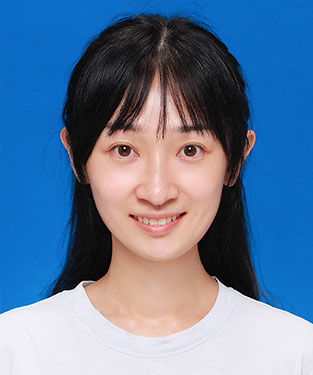

姓 名:乐融融
学 位:博士
导师情况:博士生导师
研究领域:体细胞重编程与干细胞衰老的分子机制
研究方向:1. 胚胎与体细胞重编程的端粒调控机制研究。
2. 成体干细胞衰老的分子机理。
联系电话:021-65987363
E-mail : lerongrong@tongji.edu.cn
招生要求: 热爱科研,有团队意识,不畏挫折,踏实主动。
个人简历:
2021.12-至今 同济大学生命科学与技术学院,教授
2014.10-2021.12 同济大学生命科学与技术学院,助理教授
2008.09-2014.06 中国农业大学,北京生命科学研究所,理学博士
2004.09-2008.06 中国农业大学生物学院,理学学士
个人简介:
乐融融,同济大学生命科学与技术学院,教授,博士生导师。国家自然科学基金委优秀青年科学基金获得者(2021)、上海市科委青年科技启明星(A类)获得者(2021),上海市晨光计划获得者(2015年)。
乐融融博士的主要研究方向是解析胚胎端粒调控机制和成体干细胞衰老的分子机理。首次证明了核移植技术相较于iPSC技术具有更好的修复端粒的能力(Cell Stem Cell,2014),解析了早期胚胎端粒调控的新通路在发育、体细胞重编程、多能性维持中的重要作用(Cell Stem Cell, 2021)。
乐融融博士主导了多个课题研究工作,其创新性成果发表在Cell Stem Cell、Stem Cell Reports等权威学术期刊。主持国家自然科学基金委青年科学基金项目、面上项目等,以学术骨干身份参与科技部“国家重点研发计划干细胞及转化研究重点专项”、国家自然科学基金重点项目、上海市学术带头人(第二负责人)项目。
发表论文:
1.Le, R.R.#*; Huang, YY.X.#, Zhang, Y.P.#, Wang, H.#, Lin, J.M.#, Dong, Y., Li, Z.Y., Guo, M.Y., Li, Z.Y., Guo, M.Y., Kou, X.C., Zhao, Y.H., Chen, M., Zhu, Q.S., Zhao, A.Q., Yin, J.Q., Sung, J.T., Su, Z.Q., Shi, K.R., Gao, Y.W., Chen, J.Y., Liu, W.Q., Kang, L., Wang, Y.X., Li, C., Liu, X.Y., Gao, R., Wang, H., Ju, Z.Y.*; Gao,S.R.* (2021). Dcaf11 activates Zscan4-mediated alternative telomere lengthening in early embryos and embryonic stem cells. Cell Stem Cell, 2020, 28: 1-16. IF: 25.
2.Le, R.R.#, Kou, Z.H., Jiang, Y.H., Li, M., Huang, B., Liu, W.Q., Li, H., Kou, X.C., He, W.Z., Rudolph, K.L., Ju, Z.Y.*, Gao, S.R.*(2014). Enhanced telomere rejuvenation in pluripotent cells reprogrammed via nuclear transfer relative to induced pluripotent stem cells. Cell Stem Cell, 2014, 14(1): 27-39. IF: 25.
3.Zhang, Y.P.#, Huang, Y.X.#, Dong, Y., Liu, X.Y., Kou, X.C., Zhao, Y.H., Zhao, A.Q., Sun, J.T., Su, Z.Q., Li, Z.Y., Zhang, H., Li, Y.W., Cao, S.Y., Wei, J.H., Yin, J.Q., Kang, L., Gao, Y.W., Chen, J.Y., Wang, Y.X., Li, C., Gao, R., Wang, H., Gao, S.R.*, Le, R.R.* (2021). Unique Patterns of H3K4me3 and H3K27me3 in 2-Cell-like Embryonic Stem Cells. Stem Cell Reports, 2021, 16(3): 458-469. IF: 6.63.
4.Le, R.R.#, Huang, Y.X., Zhao, A.Q., and Gao, S.R.* (2020). Lessons from expanded potential of embryonic stem cells: Moving toward totipotency. J Genet Genomics 47, 123-130. IF: 5.065.
5.Wu, L., Wu, Y., Peng, B., Hou, Z.Z., Dong, Y., Chen, K., Guo, M.Y., Li, H., Chen, X., Kou, X.C., Zhao, Y.H., Bi, Y., Wang, Y.X., Wang, H., Le, R.*, Kang, L.*, and Gao, S.R.* (2017). Oocyte-Specific Homeobox 1, Obox1, Facilitates Reprogramming by Promoting Mesenchymal-to-Epithelial Transition and Mitigating Cell Hyperproliferation. Stem Cell Rep 9, 1692-1705. IF: 6.032.
6.Chen, C., Liu, W.Q., Guo, J.Y., Liu, Y.Y., Liu, X.L., Liu, J., Dou, X.Y., Le, R.R., Huang, Y.X., Li, C., Yang, L.Y., Kou, X.C., Zhao, Y.H., Wu, Y., Chen, J.Y., Wang, H., Shen, B., Gao, Y.W., Gao, S.R. (2021). Nuclear m6A reader YTHDC1 regulates the scaffold function of LINE1 RNA in mouse ESCs and early embryos (vol 12, pg 455, 2021). Protein Cell. IF: 15
7.Yang, Y.Y., Jiao, J., Gao, R., Le, R.R., Kou, X.C., Zhao, Y.H., Wang, H., Gao, S.R., and Wang, Y.X. (2015). Enhanced Rejuvenation in Induced Pluripotent Stem Cell-Derived Neurons Compared with Directly Converted Neurons from an Aged Mouse. Stem Cells Dev 24, 2767-2777. IF: 3.082.
8.Li, H., Gao, S., Huang, H., Liu, W., Huang, H., Liu, X., Gao, Y., Le, R.R., Kou, X., Zhao, Y., et al. (2017). High throughput sequencing identifies an imprinted gene, Grb10, associated with the pluripotency state in nuclear transfer embryonic stem cells. Oncotarget 8, 47344-47355. IF: 3.707.
9.Qin, S.T., Yang, D.L., Chen, K., Li, H.L., Zhang, L.Q., Li, Y., Le, R.R., Li, X.J., Gao, S.R., and Kang, L. (2017). Pkm2 can enhance pluripotency in ESCs and promote somatic cell reprogramming to iPSCs. Oncotarget 8, 84276-84284. IF: 3.707.
10.Zhang, Y.L., Zhao, L.W., Zhang, J., Le, R.R., Ji, S.Y., Chen, C., Gao, Y.W., Li, D.L., Gao, S.R., and Fan, H.Y. (2018). DCAF13 promotes pluripotency by negatively regulating SUV39H1 stability during early embryonic development. EMBO J 37. IF: 9.889.
11.He, W.T., Zhang, X.B., Zhang, Y.L., Zheng, W.S., Xiong, Z.Y., Hu, X.J., Wang, M.Z., Zhang, L.F., Zhao, K., Qiao, Z.B., Lai, W.Y., Lv, C., Kou, X.C., Zhao, Y.H., Yin, J.Q., Liu, W.Q., Jiang, Y.H., Chen, M., Xu, R.M., Le, R.R., Li, C., Wang, H., Wan, X.P., Wang, H.L., Han, Z.M., Jiang, C.Z., Gao, S.R., and Chen, J.Y. (2018). Reduced Self-Diploidization and Improved Survival of Semi-cloned Mice Produced from Androgenetic Haploid Embryonic Stem Cells through Overexpression of Dnmt3b. Stem Cell Rep 10, 477. IF: 6.032.
12.Wang, C.F., Liu, X.Y., Gao, Y.W., Yang, L., Li, C., Liu, W.Q., Chen, C., Kou, X.C., Zhao, Y.H., Chen, J.Y., Wang, Y.X., Le, R.R., Wang, H., Duan, T., Zhang, Y., and Gao, S.R. (2018). Reprogramming of H3K9me3-dependent heterochromatin during mammalian embryo development. Nat Cell Biol 20, 620-631. IF: 20.042.
 |
同济大学高绍荣课题组 地址:上海市四平路1239号同济大学,道交馆 邮编:200092 电话:021-65982276 |